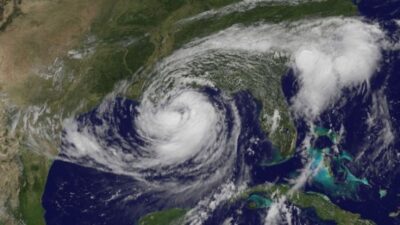Immigration at the Border

Holding the Detention System Accountable for Alleged Post 9/11 Abuses
A dozen years ago, in the days after 9/11, the Metropolitan Detention Center in Brooklyn served as the site of unimaginable horror: twenty-three hour cell confinement; sleep and food deprivation; widespread physical abuse; endless humiliation through sexual harassment and constant strip-searches; and relentless taunting and insults. The subjects of these atrocities were not enemy combatants or even convicted criminals; they were simply a group of noncitizens suspected of minor, non-criminal, immigration offenses. Their primary “offense”: the misfortune of being or appearing to be Muslim or Arab in a post 9/11 world. Read More

Nativist Group Pretends That All Unauthorized Immigrants Are Criminals
Unauthorized immigrants come to this country primarily for two reasons: to work, and to be reunited with family members who are already here. They would obviously prefer to come to this country legally, but our legal limits on immigration have for decades not matched either the realities of U.S. labor demand or the natural human desire for family unity. And so they opt to make the expensive, difficult, and dangerous decision to come without authorization because that is what they judge to be the best chance they and their families have for a better future. In other words, the overwhelming majority of unauthorized immigrants are as far from being hardened criminals as you could possibly get. They are gardeners and housekeepers; husbands and wives; parents with children. They are members of U.S. society and integral to the U.S. economy. Read More

From Coast to Coast, Immigrants Drive Local Economies
Immigrant entrepreneurship has transformed Atlanta’s northeastern suburbs along and near Buford Highway into “International Village” – an area filled with immigrant restaurants, markets, specialty stores, and other businesses. Through ventures such as Chinatown Square, Asian Square Mall, and Plaza Fiesta immigrants have “economically and socially revived an area that faced economic stagnation and population decline.” As one researcher noted, “the five-mile stretch of highway running through Chamblee, Doraville, and Norcross constitutes the greatest concentration of ethnic-owned businesses in the southeastern U.S.” Read More

California Governor Signs Sweeping Immigration Reforms into Law
On the same day thousands of immigrant activists rallied across the country for immigration reform, California Gov. Jerry Brown signed several bills into law that put the state at the forefront of the efforts to fix immigration policies at the state and local level. Among the measures Brown approved was the TRUST Act, which limits who state and local police can hold for possible deportation. "While Washington waffles on immigration, California's forging ahead," Brown said in a statement. "I'm not waiting." Read More

DHS Issues Tropical Storm Karen Guidance
As they have done during previous weather-related emergencies, the Department of Homeland Security issued guidance directing that immigration enforcement activities be suspended. The directive notes: “…to the extent that Karen impacts law enforcement operations and/or the storm triggers the need for an officially ordered evacuation or an emergency government… Read More

ICE Detainers Continue to Target Immigrants with No Criminal Convictions
This week, the Transactional Records Access Clearinghouse (TRAC) released a troubling new report showing that only about 10% of ICE detainers target “individuals who pose a serious threat to public safety or national security.” Although the agency’s highest enforcement priorities are threats to public safety and national security, government data shows that, in recent months, the majority of detainers were issued for individuals who had no criminal convictions. Read More

House Democrats Introduce New Comprehensive Immigration Bill
Several Democrats in the House of Representatives proposed H.R. 15, an immigration reform bill today that addresses border security, legalization of undocumented immigrants, interior enforcement of the immigration laws, and fixes for our dysfunctional legal immigration programs. This bill is based on S.744, which the Senate passed in June, but removes the Corker-Hoeven border security amendment. Instead, the House Democrats’ bill replaces it with Rep. Michael McCaul’s (R-TX) bipartisan House border security bill, H.R. 1417, which the Homeland Security Committee passed unanimously in May. Read More

Colorado Emergency Relief Efforts Impeded by Immigrants’ Mistrust of Law Enforcement
The recent flooding in Colorado, in which eight people died and property losses are likely to reach $2 billion, offers another reminder that local law enforcement efforts are often hindered by our broken immigration system. The Denver Post reported that some unauthorized immigrants risk injury or miss out on assistance because they are afraid to interact with police. For example, Augustina Tema’s husband, who is an unauthorized immigrant, was afraid to come outside when police officers went door-to-door to warn residents of the pending flood. Augustina, a legal resident, expressed fear of applying for assistance because of her husband’s status, a fear other undocumented families echoed. For the undocumented families, the tragedy of losing their homes to flooding is compounded by the loss of their “paper trail”—materials that would be needed to prove residency for any future legalization programs. Disaster-related documentation problems extend to those legally residing in the United States if the papers that prove an immigrant may legally live and work in the United States are lost as well, further hindering emergency assistance. Read More

Customs and Border Protection’s New “Use of Force” Initiatives Are Welcome First Steps
The endemic use of force within U.S. Customs and Border Protection (CBP) made national headlines in 2010 when Anastacio Hernandez Rojas, a 42-year old Mexican national living in San Diego, was killed by a Border Patrol Officer while in CBP custody. Since then, at least 18 other people have have died as the result of alleged excessive use of force by CBP officials, including six U.S. citizens and seven minors under 21. These incidents prompted the Department of Homeland Security (DHS) to review the use of force at CBP. A report issued earlier this month by DHS’s Office of Inspector General (OIG) exposes the inadequacies of the “use of force training” for Border Patrol agents and a series of operational flaws in the agency’s monitoring of employee misconduct. Read More

Dollars and Lives Lost in the Wait for Immigration Reform
Two-and-a-half months after the Senate passed immigration reform legislation (S. 744), the House of Representatives continues to dawdle. Other than giving speeches and mulling over a few backward-looking, enforcement-only bills, the House has done nothing to revamp the broken U.S. immigration system or to realistically resolve the status of the 11 million unauthorized immigrants now living in the United States. The standard excuse for this inaction is that there are too many other high-priority items on the legislative agenda right now—so immigration reform will have to wait. But while Congress waits, dollars and lives are being lost. Read More
Make a contribution
Make a direct impact on the lives of immigrants.
